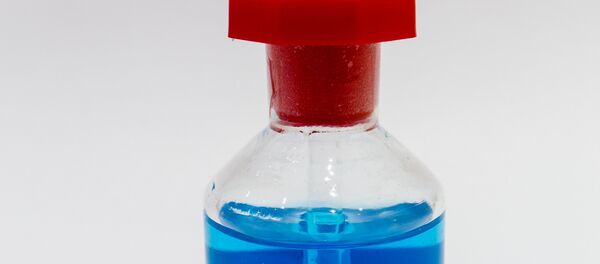The number of acid-related attacks in the UK has risen dramatically as growing numbers of thugs and gangs use the toxic substance as their favorite weapon.
Simon Harding, a senior lecturer in criminology at Middlesex University, has warned the number of acid-related incidents — often using household cleaning products — will rise further if no action is taken to try and stem the availability of toxic and highly-corrosive substances.
He argued that the accessibility of many acids, bleaches and other toxic substances from the shelves of DIY stores, supermarkets — and even online — was playing into many criminals hands.
"They are so accessible and can be readily purchased in high volume without questions being asked. They can also be bought online and delivered to homes, with people often paying cash for them, which makes it even easier. We must tackle this accessibility as this is partly why acid has become the weapon of first choice of many. We must start by cutting down on the number of places where these substances are available," Professor Harding told Sputnik.
Often, those lucky to survive such attacks are left disfigured for life, seriously burned and requiring extensive and painful surgery.
Former gang member Jermaine Lawlor, who is now working with young people, said gangs had now ditched guns and knives following a crackdown by police using stop and search tactics.
This had forced the criminal fraternity to look at other ways in which they could continue to inflict fear and terror on British streets. Gang members realize they could hide acid and other corrosive substances inside drink bottles.
Another reason why they have elected this style of attack is the ease in which it can be used, causing maximum damage without moving closer to the victim.
Professor Harding agrees, saying that throwing acid causes widespread fear among the public as was shown in a recent incident in a crowded London nightclub.
"People often don't know what is happening, if it is a terrorist attack or not, so it causes widespread panic," he said.
He admitted it was unlikely terrorists would resort to acid attacks, however, as they tend to be more targeted and not random incidents.
"With acid, what we see, is gangs attacking rival gangs, while terrorists use more traditional weapons. The use of acid as a weapon is not new, it has been used in Britain for the past 200 years, having become readily available during the industrial revolution," Professor Harding told Sputnik.
Around the world, Professor Harding said, it has become common practice to deploy it in India, Pakistan, Bangladesh and Indonesia as part of "extreme domestic violence" and honor violence.




